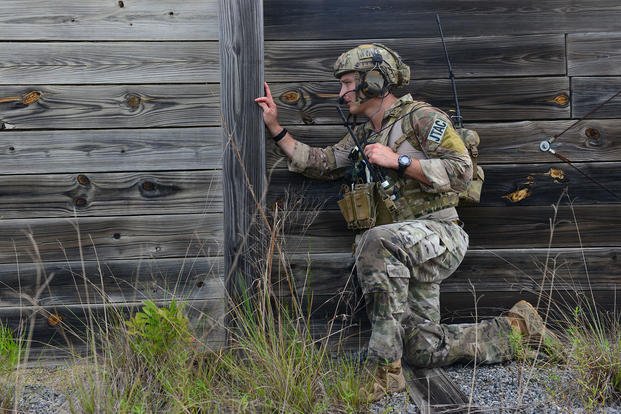After spending more than a decade helping people become members of special operations units in every branch of the military and SWAT teams in federal, state and local law enforcement agencies, I have seen a few common denominators that spell success, or graduation.
Learn More About Special Operations Forces
Ask any member of a spec-ops unit in the military or law enforcement whether they ever thought about quitting, you usually will get the same reply: "No." Because of proper physical training, your body has a better foundation to remain fit throughout training and not become injured or overtrained.
Here is a list of those commonalties:
1. Knowing how to play with pain
Many graduates of these SO programs were athletes in high school or college and know the difference between injury and pain. Sports, martial arts, tough training workouts and life in general can help you know what the difference is. But mainly graduates can suck it up when they need to and "tape it up and play," if required. This is why they say that SEAL training is 90% mental, because you have to deal with pain and discomfort daily.
2. Being a team player is critical
Understanding what it means to be a team player is critical. Once again, sports tend to be the best source for this type of aggressive sportsmanship and the skills learned to assist with being a special operations team member. There is "No 'I' in SEAL team."
3. Play to compete, not just survive
Go to your training program, seeking to win every physical, tactical or academic event there is. Be the best runner, swimmer, PTer, rope climber, shooter, land navigator, etc. No one is going to win them all, but if you can be in the top 5%-10% of the class consistently, you never will think about quitting.
This requires you to train hard for a significant amount of time, sometimes a few years of training like a madman 5-6 days a week. Understand the physical events that you will be required to do and practice them several months before your tryout. That means rucking with a backpack, swimming with fins, treading water with clothes, hundreds of reps of PT exercises several days a week, miles of running every week and lifting weights to balance out the body.
Here is a good story to drive this one home: When I ran my first (and only) marathon, I saw a few tall, thin guys stretching prior to the start. Well, their goal for that race was to drop a few seconds off their best time when mine was to just finish and maybe be under four hours.
Who do you think would have the greater chance of quitting that run? Me -- the guy just trying to survive the race. Many people who quit training in spec-ops programs go to training and just try to survive it.
BTW, I finished it and realized that, at 200 pounds, marathon running was not something I wanted to do again. My knees thank me for making that decision.
4. Maturity
Most people who make it through rigorous spec-ops training programs are older than 22 years of age, have a solid foundation of fitness training, a mental toughness developed through training or a challenging life experience, some tactical training and a calm confidence (not arrogance). See this link for more information on mental toughness.
As former SEAL and Perfect Pushup founder Alden Mills says, "The body obeys the brain." Your body will obey your brain as long as you properly prepare your body for the rigors of your training program. The key to making your mind tough is to train the body so it can handle pain better and recover from bouts of high-intensity workouts quicker.
More special operations fitness articles:
- Army Special Operations
- Navy Special Operations
- Air Force Special Operations
- Marine Corps Special Operations
- All Special Operations Articles
Stew Smith is a former Navy SEAL and fitness author certified as a Strength and Conditioning Specialist (CSCS) with the National Strength and Conditioning Association. Visit his Fitness eBook store if you're looking to start a workout program to create a healthy lifestyle. Send your fitness questions to stew@stewsmith.com.
Want to Learn More About Military Life?
Whether you're thinking of joining the military, looking for fitness and basic training tips, or keeping up with military life and benefits, Military.com has you covered. Subscribe to Military.com to have military news, updates and resources delivered directly to your inbox.


















